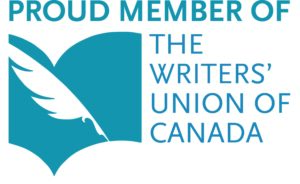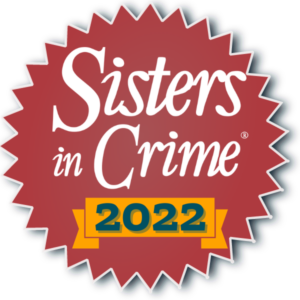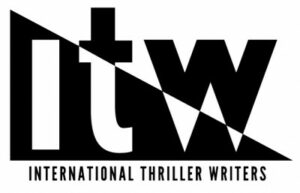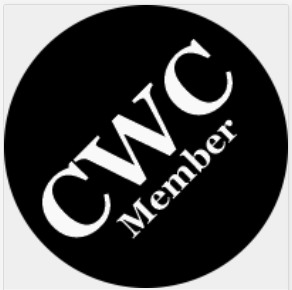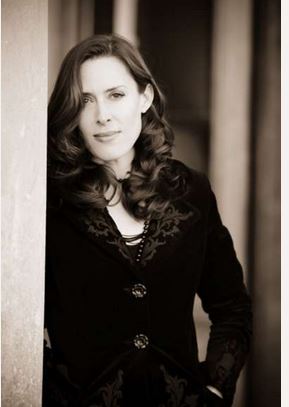
Interview with Elle Wild
ELLE WILD grew up in a dark, rambling farmhouse in the wilds of Canada where there was nothing to do but read Edgar Allan Poe and watch PBS mysteries.
Elle Wild’s debut novel, Strange Things Done, is a double Arthur Ellis Award Winner. In 2017, she won “Best First Novel”, presented by Kobo, and in 2015 won the Arthur Ellis Unhanged for “Best Unpublished Mystery”. Strange has been on multiple shortlists for other awards internationally and was a 2017 Winner in Women in Film’s “From Our Dark Side” genre writing competition.
She is currently working on her second novel, a literary thriller set in Victorian London and Dorset.
Recently returned from the U.K., Wild resides on an island in the Salish Sea named after the bones of dead whales.
I understand you spent time in Dawson City as a writer-in-residence, gathering information for your novel Strange Things Done and vomiting from morning sickness. What was that like?
Well, technically I was an “Artist in Residence”, because I’d applied as a filmmaker. (My background at the time was in film.) I shared an old Victorian house (the Macaulay House, purportedly haunted), with an Italian upcycled-bag-artist, courtesy of the Klondike Institute of Art and Culture. Between the pregnancy nausea, the nocturnal roommate, and the paranormal activity in the house (doors opening on their own, clock radios and fire alarms sounding in the middle of the night – sometimes all three at once) I didn’t get a lot of sleep. During the day, however, it was a great place for writing. I had a lovely view of snowy streets and white picket fences, and had long hours to myself to think. Neighbours, and sometimes other filmmakers or the Writer in Residence from the Pierre Burton House, dropped by unannounced for coffee, (which was difficult for a workaholic like me but also heartwarming). I also had to screen my films for the town, as a condition of my residency, which was a good way to come together with other artists in the community. I took long walks and listened to the cadences of the town and the wilderness outside the village core. In short, I loved it. I would go back in a heartbeat.
*I should also give a little shout out here to the Canada Council for the Arts, who provided a travel fund to support my residency in Dawson.
For more about the “hauntings” of the Macaulay House, see:
I know your novel has been favourably compared with Nordic Noir, but how do you think the unique setting of the Yukon sets it apart from our Scandinavian friends?
It’s difficult to say for certain, having never been to a Scandinavian country. I have heard Strange Things Done compared to Trapped, the Icelandic TV series, which I saw recently and loved. I think what Strange shares with Nordic Noir is that sense of isolation and the use of winter and wilderness as an antagonist in the story. To me, what makes the Yukon special is the colourful collection of characters that inhabit that world, (cancan dancers, miners, smugglers, draft dodgers and artists) and Dawson’s history in particular as the epicenter of the North American Gold Rush at the turn of the century. There’s a real celebration of the town’s history that is incorporated in a very visual way, from the preservation of the original boardwalks that make the town look like a wild west movie set, to the giant murals of historical figures like Robert Service and Diamond Tooth Gertie. The town has applied, I believe, for UNESCO World Heritage status, because it has preserved so many of the original structures from that special time. Dawson’s buildings have become a bit like living museums. You can walk by a Victorian bank, look in the window, and still see what the teller had out on the counter when the Gold Rush ended. The whole town is like a moment in history frozen in time. As a former history graduate, I find that fascinating.
As a director of short films, you have experienced first-hand the sexism in that industry. Noir and thriller writing is also a genre where women are underrepresented. What advice do you have for women who want to break into the old boys’ networks and make them their own?
Quite honestly, if I knew how to get my feature film made, I would have done it by now. I spent years getting coffee for (mostly male) producers as a “producer’s assistant” because I was told that was how everyone had to get started, and then I eventually walked away because I came to realize that I was never going to get my own work produced that way.
As you may know, Strange Things Done began as a feature film script, with which I had planned to make my feature directorial debut. I rewrote the story later as a novel, and published it with Dundurn Press. (No matter what people tell you about how hard it is to get published, I’ve found it far easier as a woman to get published than produced.)
Later, I entered Women in Film & Video Vancouver’s genre story pitch contest with the premise for Strange Things Done, and was a winner in their 2017 “From Our Dark Side” contest with four other wonderful women writers. Our “womentors” at Women in Film (the irrepressible Sharon McGowan and Peggy Thompson) took us all out for brunch with Telefilm and eventually took us to Montreal to pitch in the FRONTIERS Festival to an audience of producers. I thought every one of the stories deserved to be produced, and so did the panel of judges who chose the stories in the From Our Dark Side contest, including Hollywood producer Wes Craven (Nightmare on Elm Street). As far as I know, none of the Dark Side stories have been produced yet, though every one of the writers is still working at it.
So, back to your question, I don’t know how woman should get their projects made, but I know it’s not for a lack of women trying. It is my understanding, however, that several of the Canadian (film) funding bodies have made commitments to reach gender parity in the next several years, with Telefilm Canada promising funding parity by 2020. But in the meantime, we wait. I do have hope for the next generation of female filmmakers, but I’m saddened by the collective loss of female voices throughout history, whether they are filmmakers, writers or artists.
You come from a family of storytellers. How has this influenced you?
I really can’t imagine any other way to grow up than at a library or surrounded by books. My mother worked at the village library as the community storyteller, and I would go there after school to hear her read to the children during “circle time”, or to read while waiting for her to shelve books. My brother and I both loved the library. Having a library card was like a magical passport to other worlds. Both my mother and my brother are now published authors. My father is a different kind of storyteller. He had memorized Robert Service poems, in particular The Cremation of Sam McGee, which he would tell us around the campfire in the summer. This poem especially influenced my curiosity about the Yukon, and my choice of setting for my debut novel (Strange Things Done).
I love that you use humour in your writing. Tell us a joke.
Thank you! I’m not really a teller of jokes though, I’m more of a teller of stories, which sometimes have comedic elements taken from life. I can’t help observing the absurd moments of tragedy and zooming in on them. My family is dealing with my mother’s cancer at the moment, so there has been a lot of crying and laughing, sometimes at the same time, like last week when we had Chinese takeaway at a family dinner and my mother’s fortune cookie read, “Consider getting your affairs in order”. Fortunately, we all share a dark sense of humour. I think it’s a coping strategy, actually. Recently, my mother came to after having her kidney removed (because of the cancer), and the surgeon remarked that she looked well. My mother’s response was, “Compared to what? Roadkill?” I laughed so hard when I heard this, because her response was typical of the women in my family, all strong characters with sharp tongues. My grandmother, Hazel, (known as “Witch Hazel”) was once heard to remark to a gentleman, who’d asked her if he could smoke, “Smoke? Honey, I don’t care if you go up in flames!”
That sweet spot of finding something real and emotional but mining the humour in it is what makes me love John Green’s work so much. (Per below,) I just read The Fault in Our Stars and laugh-cried all the way through it. It was terrible. It was wonderful. I can’t possibly read any more of his books. I must read them all immediately.
The novel you are currently working on is set during the Victorian era in the UK. That’s about as far from the present-day Yukon as you can get. In what other ways do you think this novel will differ from your first?
True enough, Strange Things Done was set in modern time – still, it was about a town stuck in its Victorian past, so I suppose I have a bit of a historical thing going on. I’ve always had a side passion for history, and I studied it at university for four years before moving on to film production. I often set stories where I’m living at the time, including Japan, California, Dawson City, and most recently England, the setting of my current novel. What is different about setting the story in the actual past, though, and not just a place full of history, is the special attention you must pay to period dialogue and the heaps of research that historical writers have to do. I knew this when I chose to set my story in 1892, and yet I underestimated how far down the rabbit hole of research I would fall.
I think the tone of this new novel will be completely different, though it’s difficult to explain at this time. In many ways, it’s a much darker novel, and (I hope) more… explorative? And yet I think there are still undercurrents of black humour. I think perhaps the style is more British influenced this time, as I began writing it while I was immersed in British culture.
What was the last novel or short story you read that knocked your socks off and why?
Bellevue Square by Michael Redhill, definitely, for its careful balance of philosophical/literary complexity with thriller pacing. At the outset, the story seems to be a mystery, and indeed it is, but initially we think it’s going to be a murder mystery, when it’s actually a philosophical mystery. It’s brilliant. Redhill knows how to mess with a reader’s brain.
The Essex Serpent by Sarah Parry, which I panic-read after a friend of mine in the UK told me it sounded a bit like the new story I am writing, (also set in 1890’s London, but my secondary setting is Devon rather than Essex). Fortunately, they are very different, but I am grateful to my friend for introducing me to this gorgeous, gothic and highly original piece of work.
and
The Fault in Our Stars by John Green. I recently read Green’s Turtles All the Way Down and, as I said, I am now gorging myself on John Green novels. The Fault in Our Stars is the story of two star-crossed cancer patients that is both tragic and tremendously funny, and appeals to my dark sense of humour.
To find out more about Elle Wild and her writing, check out the links below.
Instagram: ellewild_novelist
Twitter: @ElleWild_writer
